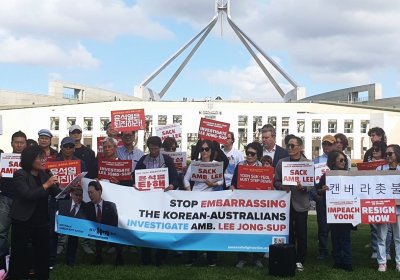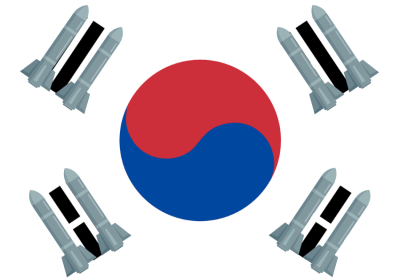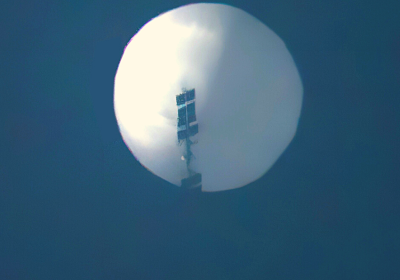Zara Lomas looks behind the diplomatic row that broke out in February between Aotearoa New Zealand and the Cook Islands.
anti-China war drive
Defence minister Richard Marles is keen to rebuke China for sending warnings to Australian military vessels and planes, but Australia is also playing chicken in the South China Sea. Pip Hinman reports.
This episode features Sam Wainwright, Socialist Alliance national co-convenor, responding to United States Deputy Secretary of State Kurt Campbell’s revealing claim that AUKUS submarines would be used to fight a US conflict in China.
Less than a month after Lee Jong-sup was appointed South Korea's (RoK's) ambassador to Australia, he was forced to resigned on March 29, amidst protests in South Korea and Australia. Seona Cho, an activist with Melbourne Candlelight Action, explains the background to this scandal and its links to the growing ties between US, Australian and South Korean arms manufacturers.
Amid rising tensions in the Asia-Pacific, Japan’s government is ramping up defence spending. Japanese revolutionary socialist Akira Kato discusses the background to this move with Green Left’s Federico Fuentes.
Promise Li is a socialist from Hong Kong currently based in Los Angeles, and a member of US socialist organisations Tempest and Solidarity. In the second part of our interview, he discusses multipolarity and its implications for anti-war and anti-imperialist organising, with Green Left’s Federico Fuentes.
Visiting Pacific peace activists Monaeka Flores (from Guahan/Guam) and Shinako Oyakawa (from Okinawa) warn that the United States military expansion in the Pacific has the dystopian objective of “winning” a nuclear war at the expense of the people on whose land these military bases are sited, reports Peter Boyle.
Secret United States government documents leaked onto social media platform Discord reveal how the US and its military is striving to reestablish hegemony — targeting adversaries and pressuring allies, report Malik Miah and Barry Sheppard.
South Korea’s far-right President Yoon Suk Yeol is rushing South Korea headlong into the middle of the new Cold War that the United States is waging against China, argue Dae-Han Song and Alice S Kim.
John Pilger recalls the "electric" opposition of writers and journalists to the coming war in the 1930s and investigates why there is "a silence filled by a consensus of propaganda" today as the two greatest powers draw closer to conflict.
What began as an overblown diplomatic response by Washington to a Chinese surveillance balloon that drifted across the continental United States, before being shot down over the Atlantic Ocean, has morphed into a major confrontation, writes Barry Sheppard.
The United States’ plan to deploy six nuclear-capable B-52 bombers to the Tindal Air Base near Darwin reminds us that war madness remains as real as ever, argues Peter Boyle.











